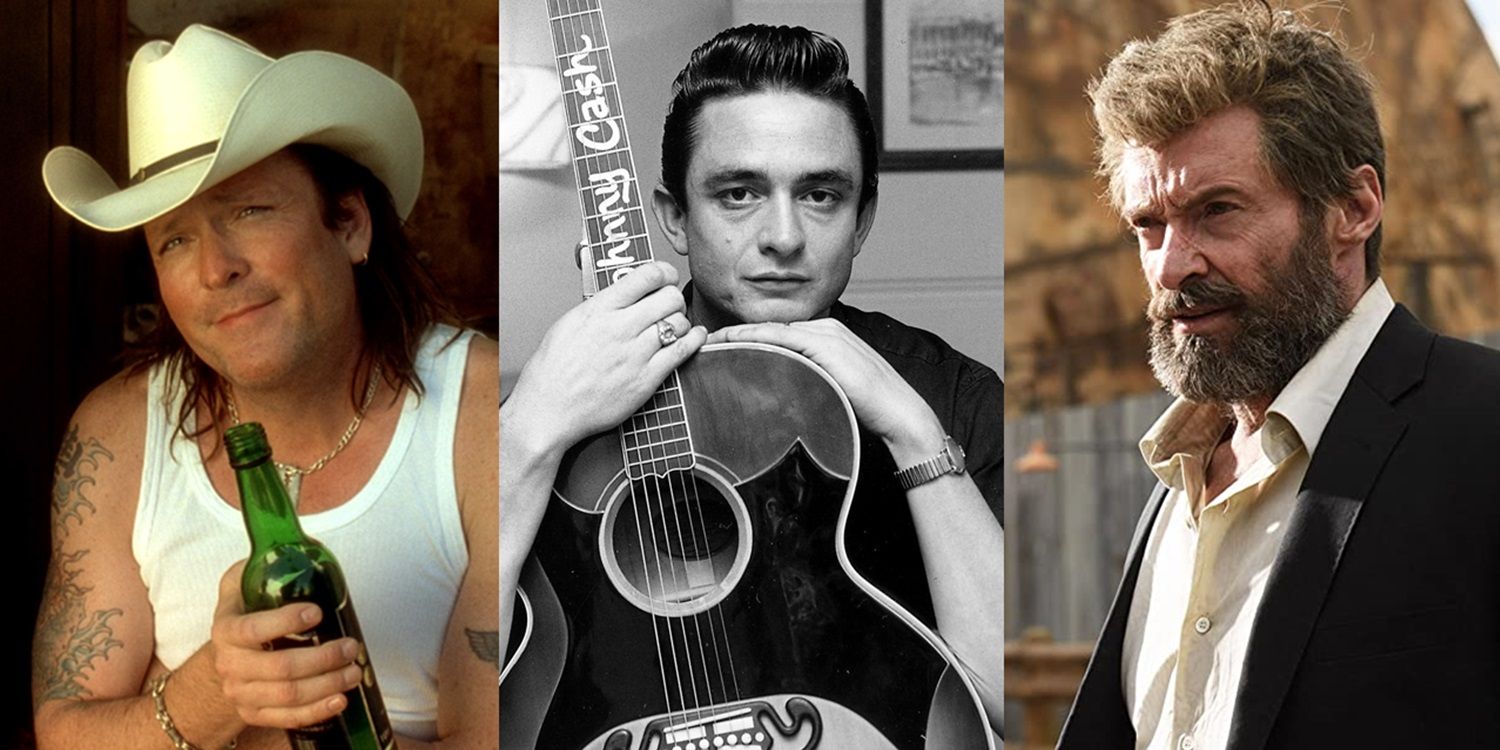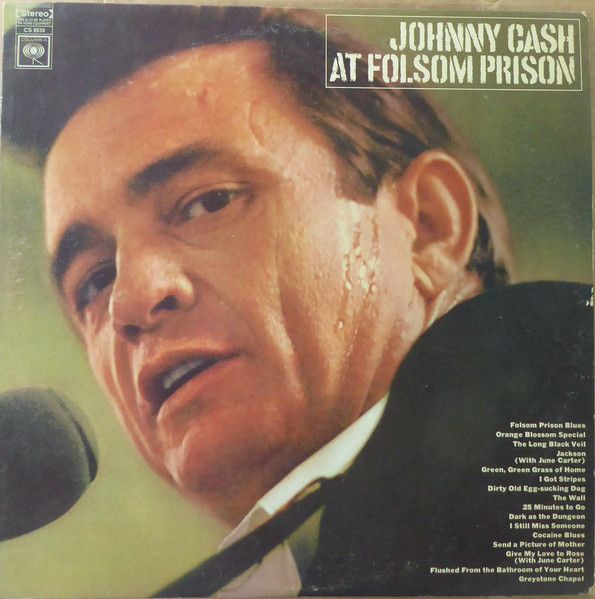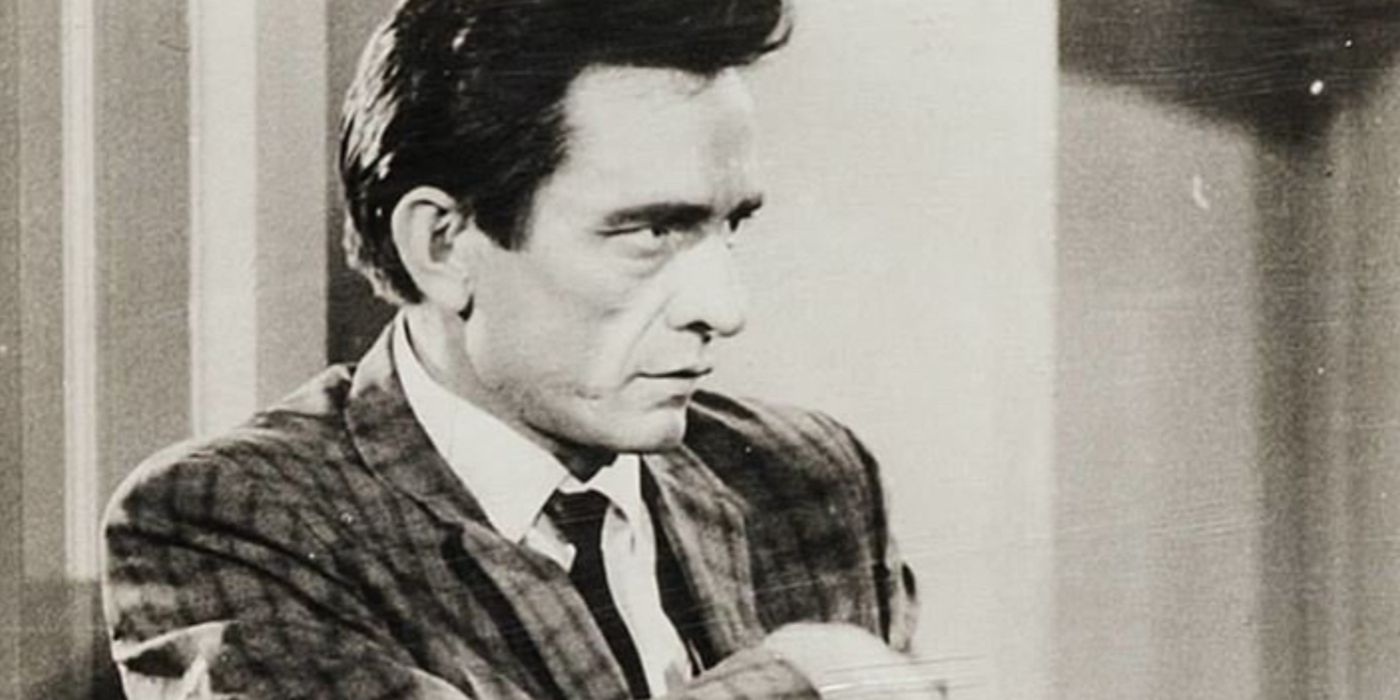[ad_1]
Artist Johnny Cash was a rare bird in the world of music. Coming up recording in the ’50s for the famed Sun Records in Memphis, Tennessee, alongside the likes of Elvis Presley, Jerry Lee Lewis, and Carl Perkins, his career experienced both critical triumphs and the deepest of losses. He survived divorce, several legal misdemeanors (but no jail time), lengthy bouts in and out of drug addiction, and near occupational irrelevancy by the ’90s before being rejuvenated through a series of albums made alongside noted hip-hop producer Rick Rubin.
In between humble beginnings and his 2003 passing, Cash also had countless hit songs/records, two iconic live albums recorded in San Quentin and Folsom Prisons, respectively, won an array of awards, and went down as one of the greatest-selling musical artists of all time. Not only that, he’s one of the rare musical creators to wind up in the trio of the Rock and Roll, Country Music, and Gospel Halls of Fame and garner the type of wide-fielding genre crossover appeal that ranged from Willie Nelson to Trent Reznor.
Sure, Johnny Cash was a part of country music, but he was also something more. He put the outlaw in the idea of outlaw country music, the man in Cash’s signature Man in Black moniker, and the chugging, churning rhythm of the train in so many classic train songs. He lived in his songs and through his songs and gave his songs so much power and humanity that they outlive him with a shine even still. Unlike money, it’s Cash that’ll last forever.
1
Folsom Prison Blues (1955)
A Breakthrough Train Song
And speaking of Cash’s train songs, one of his earliest (and most notable) was the iconic “Folsom Prison Blues.” Released by Cash as a single in 1955 and as part of his 1957 debut album, Johnny Cash with His Hot and Blue Guitar!, the track also includes another Cash stylistic staple in the form of the prison song. It almost proved to be prophetic when Cash later performed “Folsom Prison Blues” at the jail itself as the lead song on his 1968 live LP At Folsom Prison.

Related
The 10 Best Uses Of Johnny Cash Songs In Movies
Legendary country musician Johnny Cash’s poignant, soulful songs have enhanced many movies from his biopic Walk the Line to Kill Bill and Logan.
For being a song that originated in the ’50s, there’s a surprising amount of toothiness to “Folsom Prison Blues.” The murderously poetic license of “I shot a man in Reno, just to watch him die” feels like a level of braggadocio that was ahead of its time, while the narrator’s winsome wishing for life outside those jailhouse bars yearns with palpable longing. “Folsom Prison Blues” may have been country music, but with Cash at the helm, it certainly didn’t lack for a rock and roll attitude.
2
I Walk The Line (1956)
First Billboard Country Hit
Another one of Cash’s early breakthroughs, “I Walk The Line,” was an ode to his then-wife, Vivian Liberto, about Cash walking the straight and narrow of faithfulness to her during his life touring on the road (with mixed results). Also appearing on his With His Hot and Blue Guitar record, “I Walk The Line” wound up being Cash’s first number one Billboard single, and, much like “Folsom Prison Blues,” became synonymous with his legacy.
Built around a simple, shuffling guitar and percussion line, as well as Cash’s opening humming (which he used to stay in tune with the track’s key changes), “I Walk The Line” has a similar construction to early Elvis and Buddy Holly-style rockabilly tunes bobbing with country flavor. It’s straightforward, yes, but when held up by Cash’s prime, pristine baritone vocal, it has a rumbling magic that’s incomparable. “I Walk The Line” was truly a vital part of Cash’s path to stardom.
3
I Still Miss Someone (1958)
The Falling Leaves Of Longing
Recorded in 1958 for Cash’s second album, The Fabulous Johnny Cash, as the B-side to the track “Don’t Take Your Guns To Town,” Cash’s “I Still Miss Someone” was another early hit that translated into a long-time staple in both his concert setlists and overall signature song legacy. It also became a popular cover tune for other artists, ranging from Jimmy Buffett and Linda Ronstadt to Crystal Gale and Gram Parsons.
But the definitive take of “I Still Miss Someone” has always stayed with Cash. Built on similar parables as “I Walk The Line,” Cash exudes a longing, winsome tone that feels effortless. He feels as downtrodden as the falling leaves he describes in the lyrics here, in a spirit that will never fully lose his sadness. And here, that sadness is power.
4
Ring Of Fire (1963)
A Southwest-Inflected Treat
Initially (allegedly) written by songwriters Merle Kilgore and June Carter (who’d later be Cash’s wife) and recorded by Carter’s sister Anita as “(Love’s) Ring of Fire” in 1962 for her album Folk Songs Old and New, Cash took his own crack at “Ring of Fire” in 1963. Adding Mexican-inspired mariachi horns and tweaking some of the lyrics, Cash needed a hit song at the time, and he got it as “Ring of Fire” went on to be one of his all-time best-selling and most recognized tracks.
Taking the simple backing of great songs such as “I Walk The Line” and “Folsom Prison Blues,” “Ring Of Fire” builds on the formula with horns that could have very easily been cheesy in their approach. But instead, it provides a Spanish-leaning flair that wraps into the warm comfort of Cash’s bear-hugging voice and gives these burning embers an extra level of stake in the implied potential consequences of the song.
5
The Ballad Of Ira Hayes (1964)
Seeded In The Roots Of Activism
“The Ballad of Ira Hayes” is a song that initially emerged from the pen of folk singer Peter La Farge about Ira Hayes, a Native American man who was one of six marines to raise the US flag in an iconic photo from the Battle of Iwo Jima during World War II. Despite the publicity, Hayes and his Pima tribe continued to face hostility and contempt back home, with Hayes eventually dying of alcohol poisoning and exposure at just 32 years of age. He was said to have suffered from alcoholism and post-traumatic stress disorder, among other issues.
Later in Cash’s career, he chose to cover “The Ballad of Ira Hayes” as part of his 1964 concept album, Bitter Tears: Ballads of the American Indian, a record all about the history of Native Americans in the United States and the issues they’d encountered. While it was an adept country song in true Cash fashion, it also said a lot at the time about what Cash was willing to stand up for as far as shining a light on the plight of Native Americans in those days. He put his career at risk for the need of a greater cause.
6
A Boy Named Sue (1969)
Some Silverstein Tongue In Cheek
In addition to being a noted author, humorist, and poet, the famed Shel Silverstein also took a crack at songwriting back in the day. One of his compositions, “A Boy Named Sue,” wound up being recorded live by Cash in 1969 during his At San Quentin prison album concert. “Sue” became a hit that topped multiple music charts and carved yet another notable selection into Cash’s many storied chapters of hit songs and moments.
“A Boy Named Sue” also demonstrated that Cash wasn’t simply a serious-minded musician. Even while still half-reading the lyrics off of a piece of paper during the recorded performance, Cash still perfectly encapsulates the wry humor and wit tof Silverstein’s words. He brings to life the unfortunately named, quick-to-a-fight narrator of the song and his quest for revenge against the father who gave him the name Sue in the first place. It becomes almost impossible to hear the character with any other voice.
7
Sunday Morning Coming Down (1970)
A Critically Acclaimed Cover Song
Written by famed country music singer-songwriter Kris Kristofferson and also covered by musician Ray Stevens in 1969, Cash did his take on “Sunday Morning Coming Down” for a taping of The Johnny Cash Show that was later put onto a 1970 live album of performances from the program. Cash had the biggest hit with “Sunday Morning Coming Down,” as the performance ultimately led the Man in Black to another top song on the Billboard Country charts.
Much like “A Boy Named Sue,” Cash once again has that ability to embody the narrator of a song that’s not his own. Though unlike “Sue,” Cash swaps out humor for the room-darkened, hangover-weary center of the lonely drifter, burned out both by the vice of substances and the substance known as the hard edge of life. There’s a tentatively fragile beauty even in the midst of the idea of such sadness in this song, and Cash finds the essence of its center on “Sunday Morning Coming Down.”
8
Man In Black (1971)
A Wardrobe In Protest
While there is some debate over where Cash’s “Man In Black” nickname exactly got started in relation to his choice of all-black clothing fashion, it’s well known that he chose to write a 1971 protest song with the same title for an album also called Man In Black. In it, Cash states that he does this as an act of speaking out for the poor and downtrodden people being taken advantage of by rich politicians in the waning years of the Vietnam War.
Much like “The Ballad Of Ira Hayes” (though with less industry pushback), this was Cash once again putting a cause on the line in exchange for a potential risk to his career success. It was one of the aspects that put the outlaw in Cash’s own brand of outlaw country and gave him an everlasting, endearing, maverick-type quality.
9
Hurt (2002)
The Pain In Twilight
Originally written by Trent Reznor as the closing track of his band Nine Inch Nails’ 1994 album The Downward Spiral, the song “Hurt” was the closing case of a man at the breaking point of self-destruction. While Reznor embodied the track’s emotion from a younger person’s perspective of turmoil, Cash’s stripped-back take for his 2002 album American IV: The Man Comes Around swapped frames to an older spirit’s look at the ghosts of regret.

Related
Chris Hemsworth Covers Johnny Cash’s Hurt As Fat Thor In Endgame Set Video
Avengers: Endgame star Chris Hemsworth unveils a behind the scenes set video of himself as Fat Thor playing and singing Johnny Cash’s “Hurt”.
Coupled with a highly emotional music video looking at both Cash’s youthful prime and weary age as his health was failing, “Hurt” became so powerful for Cash that even Reznor himself felt like the song was no longer his own. “Hurt” was part of the essence of why Cash’s collaboration with producer Rick Rubin on the American albums worked so well. Rubin still saw the spark within Cash’s creative soul, and the fire wasn’t far behind.
10
Like The 309 (2003/2006)
The Train Song’s Final Journey
Released posthumously in 2006 as part of Cash’s American V: A Hundred Highways LP, “Like The 309” was one of the final songs ever written by Cash before his death in 2003. How fitting, then, that much like one of Cash’s first hits in 1955 with “Folsom Prison Blues,” “Like The 309” also revolved around the topic of trains.
Though instead of taking on the role of a man in prison, longing to be aboard the locomotive he can hear rolling by from behind the walls and bars of his prison cell, the Cash of “Like The 309” is finally free. He’s able to get aboard that train, get his ticket punched, and speed toward his eternal rest at last. The circle is complete, the journey is over, and the prison lies behind him. He transcends the bars to finally lie among the stars.

[ad_2]
Source link
